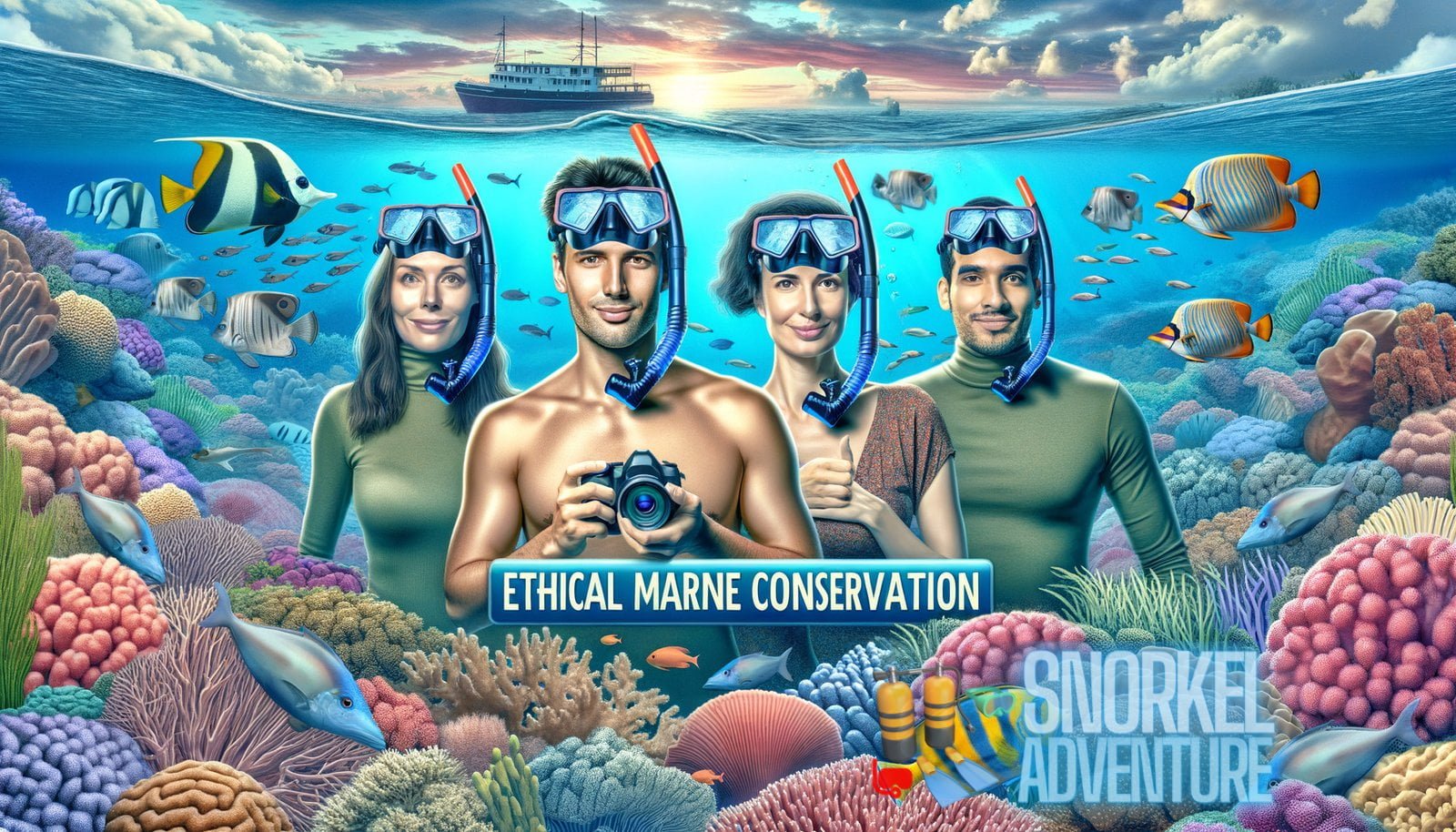Introduction
Unveiling the Hidden Gems: Exploring the Intricate Relationship Between Snorkeling and Marine Conservation
Snorkeling is a popular recreational activity that allows individuals to explore the vibrant and diverse underwater world. It provides an opportunity to witness the beauty of marine life up close and personal. However, amidst the excitement and wonder, it is crucial to acknowledge the impact of snorkeling on marine ecosystems. In recent years, there has been a growing emphasis on the need for snorkeling enthusiasts to take part in marine conservation efforts. This article delves into the intricate relationship between snorkeling and marine conservation, highlighting the importance of sustainable snorkeling practices and their positive impact on marine ecosystems.
The Impact of Snorkeling on Marine Ecosystems
Snorkeling, while fascinating and enjoyable, can have unintended negative consequences on marine ecosystems if not conducted responsibly. The following are some ways in which snorkeling can adversely affect marine life:
- Physical Damage: Snorkelers who are not careful can accidentally damage fragile coral reefs and other marine habitats by kicking, stepping on, or touching them. The physical contact can lead to the breakage and death of coral colonies, which are essential for the survival of numerous marine species.
- Human Disturbance: The presence of snorkelers can disrupt the natural behavior and patterns of marine life. Constant noise, movement, and disturbance can stress and disturb marine organisms, affecting their reproductive cycles and overall health.
- Marine Debris: Improper disposal of snorkeling equipment, such as masks, snorkels, and fins, can contribute to marine debris. These items can pose entanglement hazards for marine animals, and if they break down, they can release harmful chemicals into the water.
- Chemical Pollution: Sunscreen and other personal care products used by snorkelers can contain harmful chemicals that can be detrimental to coral reefs and other marine organisms. Chemicals such as oxybenzone have been shown to cause coral bleaching and disrupt hormonal balance in marine species.
Understanding the potential impact of snorkeling on marine ecosystems is the first step towards mitigating these effects and promoting responsible snorkeling practices.
Promoting Responsible Snorkeling Practices
To ensure the preservation and conservation of marine ecosystems, it is essential for snorkelers to adopt responsible practices. The following are some measures that can be taken to promote sustainable snorkeling:
- Respect Marine Life: Snorkelers should avoid touching, chasing, or feeding marine animals. This can disrupt their natural behavior and cause unnecessary stress. It is important to remember that snorkeling is about observing and appreciating marine life in its natural habitat, rather than interfering with it.
- Do Not Remove Marine Life: Snorkelers should refrain from collecting seashells, corals, or any other marine life souvenirs. Removing these organisms can disrupt the delicate balance of marine ecosystems and harm the populations of various species.
- Stay a Safe Distance Away: It is crucial to maintain a safe distance from marine animals and fragile habitats. Snorkelers should avoid getting too close to coral reefs or other sensitive areas to prevent unintentional damage.
- Choose Eco-Friendly Snorkeling Gear: Opting for eco-friendly snorkeling gear made from sustainable materials helps reduce the environmental impact. Snorkelers can find a variety of eco-friendly options, including snorkels made from recycled plastic and biodegradable sunscreen.
By adhering to these responsible snorkeling practices, individuals can ensure that their underwater adventures have a positive impact on marine ecosystems.
The Role of Snorkeling in Marine Conservation

Snorkeling plays a significant role in marine conservation efforts. By engaging in snorkeling activities, individuals can become more aware of the fragile beauty and importance of marine ecosystems. Snorkelers often develop a personal connection with the underwater world, leading them to value and protect it. The following are ways in which snorkeling contributes to marine conservation:
- Education and Awareness: Snorkeling provides a unique opportunity for individuals to observe marine life in its natural habitat. This firsthand experience fosters a deep sense of appreciation and understanding, inspiring snorkelers to learn more about marine conservation and spread awareness about the threats faced by marine ecosystems.
- Volunteer Programs: Many organizations and marine parks offer snorkeling volunteer programs that allow individuals to actively contribute to marine conservation efforts. These programs involve activities such as reef monitoring, marine debris cleanup, and coral propagation, enabling snorkelers to make a direct positive impact on marine ecosystems.
- Data Collection: Snorkelers can assist scientists and researchers by collecting valuable data on marine species and habitats. This citizen science approach provides researchers with essential information that contributes to the understanding and conservation of marine ecosystems.
- Funding Conservation Efforts: Snorkeling tourism can generate significant revenue that can be directed towards the conservation and management of marine protected areas. The economic value of snorkeling can incentivize governments and organizations to invest in the protection and restoration of marine ecosystems.
Through these various avenues, snorkeling actively contributes to the conservation and preservation of marine ecosystems, making it a valuable tool in the fight against the decline of marine biodiversity.
Successful Examples of Snorkeling and Marine Conservation Initiatives
Several successful examples highlight the positive impact of combining snorkeling with marine conservation efforts. These initiatives have achieved notable results in terms of safeguarding marine ecosystems. The following are two such examples:
Hanauma Bay, Hawaii
Hanauma Bay, located on the island of Oahu, is a renowned snorkeling destination that is also an official nature preserve. The bay was once facing significant environmental degradation due to excessive tourism. However, through the implementation of a strict conservation program, Hanauma Bay has made a remarkable recovery. The bay now requires all snorkelers to watch an educational film that highlights responsible snorkeling practices and the importance of marine conservation. Snorkelers are also not allowed to wear sunscreen to minimize chemical pollution. These measures have led to a significant increase in the health and biodiversity of the bay’s coral reefs.
Great Barrier Reef Marine Park, Australia
The Great Barrier Reef Marine Park is one of the most famous snorkeling destinations in the world. Recognizing the threats faced by this iconic ecosystem, the Australian government, along with various organizations, has implemented numerous conservation measures. These include the reduction of fishing pressure, the establishment of no-take zones, and initiatives to promote responsible snorkeling practices. Snorkelers visiting the Great Barrier Reef Marine Park are encouraged to follow strict guidelines that limit their impact on the fragile coral reefs. These efforts have contributed to the preservation and management of this globally significant marine ecosystem.
These examples demonstrate how snorkeling and marine conservation can go hand in hand, creating a harmonious relationship where tourism can support the protection of marine ecosystems.
Conclusion
Snorkeling is a captivating activity that allows individuals to witness the hidden gems of the underwater world. However, it is essential to recognize the impact that snorkeling can have on marine ecosystems and take active steps towards promoting responsible practices. By adopting sustainable snorkeling practices and actively participating in marine conservation efforts, individuals can contribute to the preservation of marine biodiversity for future generations. Snorkeling has the potential to be an invaluable tool in raising awareness, generating funding, and collecting crucial data for the conservation of marine ecosystems. The intricate relationship between snorkeling and marine conservation holds immense promise for the safeguarding of our oceans and the wonders they hold.
For more information on marine sustainability and responsible snorkeling practices, check out the following articles: Remember, responsible snorkeling and marine conservation efforts are crucial for the longevity and health of our oceans and all the incredible life within them.

